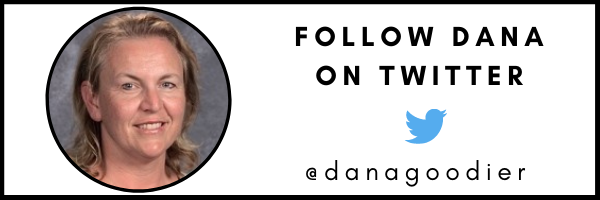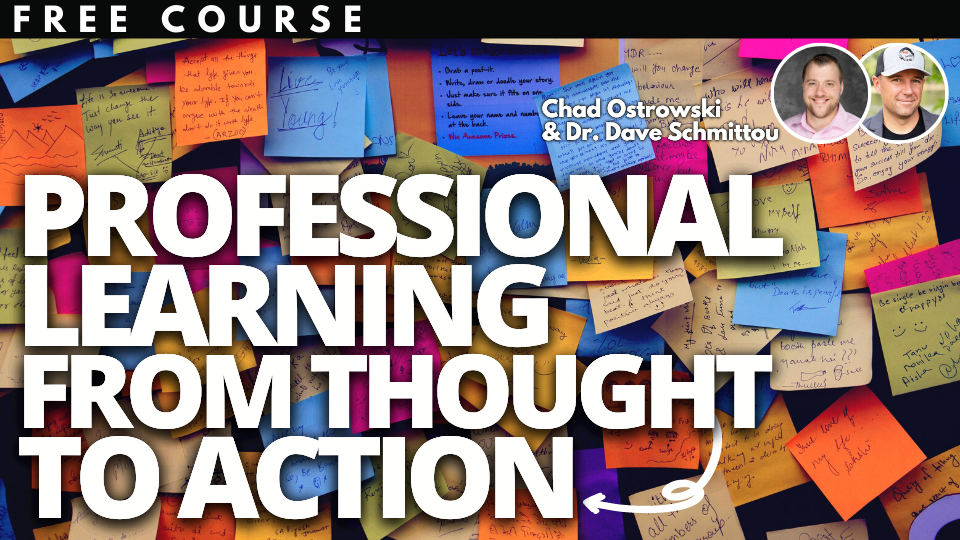TL;DR:
- Teachers need to feel valued and appreciated to thrive.
- Administrators should find ways to connect with their staff and make them feel valued.
- Teachers need to the opportunity to be heard and understood.
This year when many educators are evaluating whether or not they want to stay in education, the bottom line is that leaders need to place more value on their staff. As we approach Teacher Appreciation Week, think of ways to show staff you care by creating value for them. When we don’t create value for staff, they will feel unappreciated and underutilized. However, when value is created for the educators in our buildings, they will “jump on board” and fully become members of the team. They will do more than expected, and go above and beyond because they feel their role has value.
Average isn't a place many educators strive to be. But if they work in an environment where they feel little worth, they will not feel like giving it their all. Click To TweetGoing Beyond Average
Do you, as a school or district leader, want your people to only strive to be average? Sometimes, educators are in support roles where their job description isn’t truly defined and can fluctuate from day-to-day. When we use those staff members’ skills and pull out the best in them, we make it easier for the organization to thrive through their contributions.
Listen and Validate What Staff Are Saying
Validating people is also an important leadership skill. When you’re leading with intention, you make it a point that voices are heard. If a leader is listening to a person or group of people and appears disconnected, such as checking email or their phone, then the person speaking with them feels like what they have to say isn’t important.
As leaders, we must make it a point to actively listen to our staff. A few ideas on how to better connect with staff during these types of conversations is to take it out of your office. You can meet with them in their classroom or workspace. You can take a walk with them or meet in the cafeteria when it’s empty or outside the commons area.
Don’t Just Assume
Leaders need to avoid making assumptions about staff members. Just like teachers should start out with their classes and assume positive outcomes from all their students, school leaders should not be quick to assume the staff member has done something wrong without first gathering the correct information before moving forward. Something as simple as asking a teacher more details to understand will clear up misconceptions.
Recently, a teacher in my building was covering for another teacher. The teacher who was out had gone a little “off script” from what the literacy manual had in it for the daily lesson. The teacher who covered for them followed the directions of the absent teacher. The plans from that teacher included some cursive writing practice for the students.
The supervising administrator assumed that the covering teacher had gone off-script. It was assumed they needed to be re-trained in the literacy interventions that are used in the building. Instead of assuming, the administrator could have asked to see the plans from the absent teacher. When the covering teacher followed up with the email that included the cursive writing practice, the administrator understood the situation better. However, other steps could have been taken by the administrator instead of assuming to begin with.
[scroll down to keep reading]Emotional Intelligence and Hiring Season
All these tools about valuing staff are important to remember as leaders start hiring their staff for next year and write or revise their school goals. We must never lose sight of what matters most in our school communities: the relationships. We often forget building relationships with staff is as important as building relationships with our students and stakeholders.
If you have a story of an assumption that was made or how you could have improved how you value your staff, tweet me at @danagooder with the hashtags #staffappreciation and #valuingstaff
Reference
Sanfelippo, J. (2022). Lead from Where You Are: Building Intention, Connection and Direction in our Schools. Dave Burgess Consulting, San Diego, CA.
About Dana Goodier
Dr. Dana Goodier has 20 years of experience in education. She has taught World Languages and English and worked as a middle school administrator. She completed her doctorate degree (Ed.D.) in Educational Leadership early 2020. For her dissertation, she researched reasons parents were opting their students out of high-stakes testing at middle schools and how that affected the district accreditation rating. She often speaks at conferences, providing educators with techniques to minimize off-task behavior and to increase time on task. She is the host of the “Out of the Trenches” podcast, which features educators who share their stories of resiliency. Follow her on Twitter @danagoodier and visit her website at: www.danagoodier.com




